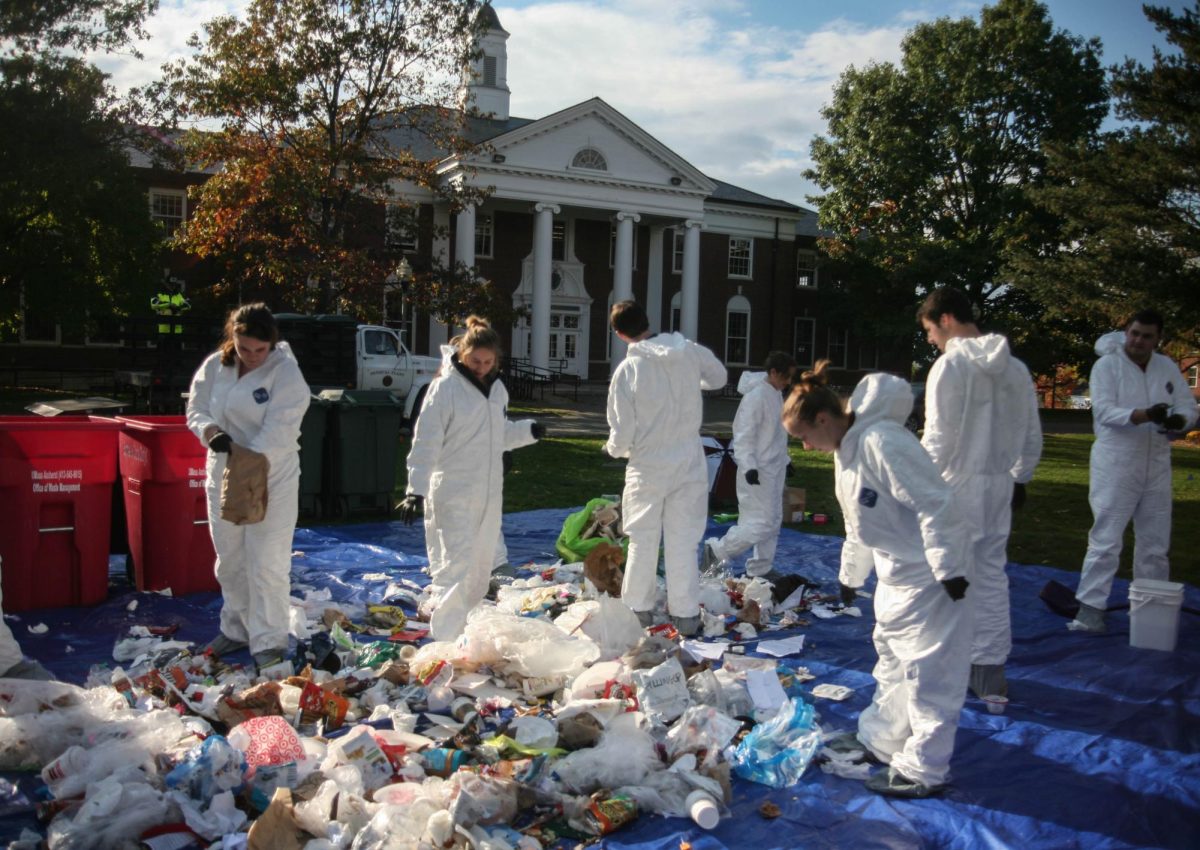
The UMass Foundation, in charge of the University’s $770 million endowment, decided to divest from direct investments in coal last week. The UMass Fossil Fuel Divestment Campaign acknowledged the victory, but was also fully aware that it is only a step in the right direction. Unfortunately, divesting from coal investments is barely even a step.
The University of California (UC) school system decided in September to sell off its holdings in coal and oil sands companies. The UC system has a much larger endowment than the UMass system does, and the coal and oil sands holdings it sold off were valued at about $200 million. In comparison, coal investments made by UMass were valued at only $400,000.
According to UC chief investment officer Jagdeep Bachher, the selling of UC’s coal and oil sands investments were caused by, “slowing global demand, and increasingly unfavorable regulatory environment, and a high threat of substitution.” Bachler went on to say these factors “pose insurmountable challenges to coal mining companies.”
While sustainability issues were mentioned as an afterthought, the main reason UC appeared to have divested from coal was due to its fiscal unreliability as an investment. This was all but confirmed by University spokeswoman Dianne Klein of UC, who told Reuters that UC is still free to invest in such companies “if market circumstances” warrant it.
Universities like UC or UMass just don’t have a reason to invest in coal anymore. While it’s nice to imagine that some great leap was just made in the fight for sustainability and prevention of climate change, there really wasn’t. This was a long time coming. The coal industry is dying. In fact, in the past few years, 26 U.S. coal companies have gone bankrupt. Divesting from coal was just a smart investment move by the two schools.
The stated investment policy of the University of Massachusetts Foundation is to “maximize the return on investments to the fullest extent possible.” Considering this philosophy, it makes perfect sense that the UMass Foundation would want to divest from coal. They might drop an investment they consider unsavory and later attach the claim of environmental sustainability to the list of reasons they divested, but the main reason any change is made is because of the money. Money is always the heart of it all.
The UC system has $10 billion in investments in energy industry companies other than coal and oil sands and it has absolutely no plans to sell those investments. They represent about 10 percent of the UC system’s total investments, and while UC was willing to get rid of a proportionally smaller $200 million in sure-to-decline coal and oil sand stocks, they aren’t willing to drop any more promising, larger investments.
With the larger UC school system setting the bar, it’s hard to assume UMass will react any differently. Another glaring clue is that the UMass Foundation will not publicly discuss how much is has invested in other fossil fuel related companies. It is safe to assume those investments represent a much larger part of the UMass endowment than coal investments did. Coal represented a very small portion of the portfolio.
While UMass will not discuss its investments in other fossil fuel industries, it has emphasized its commitment to socially responsible investing. As part of this commitment, the UMass Foundation formed the Socially Responsible Investing Advisory Committee. (SRIAC) The SRIAC, an off shoot of the UMass Foundation, is run by alumni and faculty representatives and acts as an intermediary to voice concerns raised by students, faculty, alumni and other members of the UMass community to the foundation.
This may sound well and good, a board solely responsible for voicing the concerns of the voiceless to the group who has their hands on the money, but as with anything that sounds truly good, there are some significant catches. According to the SRIAC guidelines, while the SRIAC is responsible for “addressing allegations of social injury resulting from Foundation investments,” it shall not, “recommend that the Endowment Fund be invested specifically to remedy social injustices.” The committee was created under the name of advising socially responsible behavior, yet it cannot guide the Foundation to invest to solve social injustices. Not only that, but the SRIAC only acts as an advisory committee and the Foundation is not required to take the advice of anything the committee says.
Even the way in which part of the last stated principle of the SRIAC is phrased seems patronizing, stating that issues brought up by the University community will be discussed, “in an informed, thoughtful and collegial way by those who are familiar with the Foundation’s investment responsibilities.” Being promised an informed, thoughtful and collegial review of your concerns is essentially the exact minimum that should be expected. It’s a nothing statement.
Divestment from coal is surely a positive step for the UMass Foundation, considering the drastic implications of climate change. All the same, much more needs to be done and coal is but a dying industry ready to be abandoned. Divestment from all fossil fuels is what is really necessary. Unfortunately, the case of the UC system points out that fossil fuel divestment might not come easily. The SRIAC seems to have the interests of the campus community in mind, but the group really lacks power.
It isn’t yet a time for celebration, ground has only just been broken.
Ian Hagerty is a Collegian columnist and can be reached at [email protected].



















Spartacus • Dec 10, 2015 at 7:43 pm
Thank you for your honest commentary. It was only a matter of time before the school abandoned direct investments, it just doesn’t make fiscal sense anymore. That is the most important job of the UMass Foundation, to make profitable investments for our university’s future so as to allow for our school to continue rising among the ranks as a world leader in research and innovation by building better facilities and attracting better professors and students for many years to come.